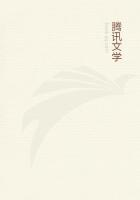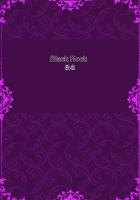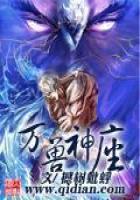But it is the wise and virtuous man who, having made these observations with the utmost care, directs his conduct chiefly by this ideal standard, and esteems himself rightly in consequence. He feels the imperfect success of all his best endeavours to assimilate his conduct to that archetype of perfection, and remembers with humiliation the frequency of his aberration from the exact rules of perfect propriety. And so conscious is he of his imperfection that, even when he judges himself by the second standard of ordinary rectitude, he is unable to regard with contempt the still greater imperfection of other people. Thus his character is one of real modesty, for he combines, with a very moderate estimate of his own merit, a full sense of the merit of others.
The difference indeed between such a man and the ordinary man is the difference between the great artist who judges of his own works by his conception of ideal perfection and the lesser artist who judges of his work merely by comparison with the work of other artists. The poet Boileau, who used to say that no great man was ever completely satisfied with his own work, being once assured by Santeuil, a writer of Latin verses, that he, for his own part, was completely satisfied with his own, replied that he was certainly the only great man who ever was so. Yet how much harder of attainment is the ideal perfection in conduct than it is in art! For the artist may work undisturbed, and in full possession of all his skill and experience. But "the wise man must support the propriety of his own conduct in health and in sickness, in success and in disappointment, in the hour of fatigue and drowsy indolence, as well as in that of the most wakened attention. The most sudden and unexpected assaults of difficulty and distress must never surprise him. The injustice of other people must never provoke him to injustice. The violence of faction must never confound him. All the hardships and hazards of war must never either dishearten or appal him."Pride and vanity are two distinct kinds of that excessive self-estimation which we blame in persons who enjoy no distinguished superiority over the common level of mankind; and though the proud man is often vain, and the vain man proud, the two characters are easily distinguishable.
The proud man is sincere, and in the bottom of his heart convinced of his own superiority. He wishes you to view him in no other light than that in which, when he places him- self in your situation, lie really views himself. He only demands justice. He deigns not to explain the grounds of his pretensions; he disdains to court esteem, and even affects to despise it. He is too well contented with himself to think that his character requires any amendment. He does not always feel at ease in the company of his equals, and still less in that of his superiors. Unable as he is to lay down his lofty pretensions, and overawed by such superiority, he has recourse to humbler company, for which he has little respect, and in which he finds little pleasurethat of his inferiors or dependants. If he visits his superiors, it is to show that he is entitled to live with them more than from any real satisfaction he derives from them. He never flatters, and is often scarcely civil to anybody. He seldom stoops to falsehood; but if he does, it is to lower other people, and to detract from that superiority which he thinks unjustly attached to them.
The Vain man is different in nearly all these points. He is not sincerely convinced of the superiority he claims. Seeing the respect which is paid to rank and fortune, talents or virtues, lie seeks to usurp such respect;and by his dress and mode of living proclaims a higher rank and fortune than really belong to him. He is delighted with viewing himself, not in the light in which we should view him if we knew all that he knows, but in that in which lie imagines that he has induced us to view him. Unlike the proud man, he courts the company of his superiors, enjoying the reflected splendour of associating with them. " He haunts the courts of kings and the levees of ministers,..... he is fond of being admitted to the tables of the great, and still more fond of magnifying to other people the familiarity with which he is honoured there; he associates himself as much as he can with fashionable people, with those who are supposed to direct the public opinion with the witty, with the learned, with the popular; and he shuns the company of his best friends, whenever the very uncertain current of public favour happens to run in any respect against them." Nevertheless, "vanity is almost always a sprightly and gay, and very often a good-natured passion." Even the falsehoods of the vain man are all innocent falsehoods, meant to raise himself, not to lower other people. He does not, like the proud man, think his character above improvement; but, in his desire of the esteem and admiration of others, is actuated by a real motive to noble exertion. Vanity is frequently only a premature attempt to usurp glory before it is due; and so "the great secret of education is to direct vanity to proper objects," by discouraging pretensions to trivial accomplishments, but not those to more important ones.
Both the proud and the vain man are constantly dissatisfied; the one being tormented by what he considers the unjust superiority of other people, and the other dreading the shame of the detection of his groundless pretensions.
So that here again the rule holds good; and that degree of self-estimation which contributes most to the happiness and contentment of the person himself, is likewise that which most commends itself to the approbation of the impartial spectator.
It remains, then, to draw some concluding comparisons between the virtues of Self-command and the three primary virtuesPrudence, Justice, and Benevolence.















